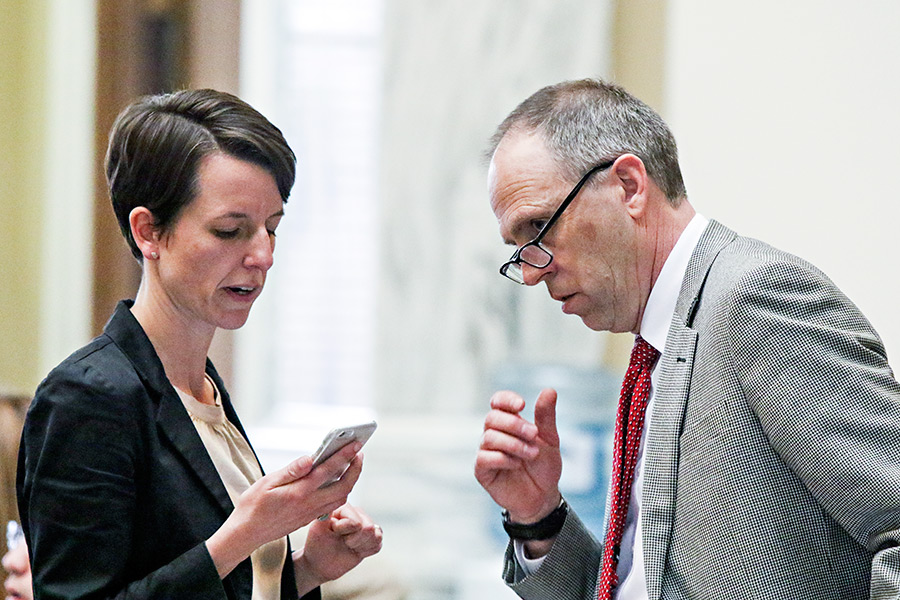HELENA — Montana Republicans on Wednesday picked their leaders for the upcoming legislative session with a focus on laying the groundwork to take back the governor’s office in 2020.
Senate President Scott Sales of Bozeman will return to his position after fending off a challenge from his No. 2 in the 2017 legislative session, Senate Majority Leader Fred Thomas, R-Stevensville.
House Republicans chose Greg Hertz of Polson over Nancy Ballance of Hamilton as the new House speaker to replace departing Speaker Austin Knudsen.
Republicans have majorities in both the House and Senate, which allows their caucuses to choose the Legislature’s top leadership posts. Republican lawmakers from both chambers said their priority is to strengthen and unify their party to increase their chances of winning the governor’s office, which has been in Democratic hands since 2005.
Democratic Gov. Steve Bullock is in his final term, meaning the seat will be open for the first time since 2012.
“It’s my hope that we can reverse the course that I had where I served one term with a Republican and seven terms with a Democrat governor,” Sales said in his acceptance speech. “We have the ability to do it and our work starts today.”
Sales said June’s bruising four-way GOP primary for U.S. Senate that Matt Rosendale won before losing this month to Democratic incumbent Jon Tester reflected poorly on the party. The GOP needs to do better for the 2020 elections, he said.
“We gave all the soundbites that the Democrats needed to effectively campaign against our candidate, and Tester wins another squeaker,” Sales said.
Hertz, the new House speaker, emphasized unity among the House Republican caucus after previous legislative sessions revealed deep divisions between the group’s conservative and moderate members, Lee Newspapers of Montana reported. By the special legislative session last fall, the caucus was working in lockstep with each other and accomplished a lot, he said.
“I want to carry that unity forward to the 2019 session,” Hertz said. “The power of unity, we can work together, just like we did in the special session in 2017. We can work together and have great process for the people of Montana.”
Democratic lawmakers selected Rep. Casey Schreiner of Great Falls as House minority leader and unanimously re-elected Sen. Jon Sesso of Butte as Senate minority leader.
Schreiner and Sesso said preserving the state’s Medicaid expansion program is the first priority for Democrats. The program that enrolls about 96,000 adults expires in 2019 unless the Legislature extends it, after voters rejected a ballot initiative to pay for the program by raising the state’s tobacco taxes.
“Montanans might have pushed back on increasing taxes to cover (Medicaid expansion),” Schreiner said, “but that doesn’t mean Montanans don’t believe in taking care of each other.”
Hertz said Republican lawmakers will be “looking at different alternatives to see how best we can continue Medicaid expansion.”
“We just need to make sure if we continue with it, it needs to be a viable program,” he said.
